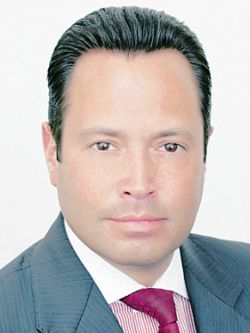
Alex Skoblo
Partner and Head of CIS Hotel & Hospitality Practice Group
Dentons
It is not enough to own a beautiful property in a prime location in order to ensure that your hotel business thrives: day-to-day operation is the key to success. For owners that wish to delegate this task to a hotel management company, there are a few pitfalls to avoid when dealing with the professional hotel operator.
A common mistake is to not shop around. Because of personal affinities or brand prestige, a hotel owner may become fixated on a specific operator, most often a first-tier management company (Hilton, Hyatt, Sheraton, etc.). But it is common sense that a certain degree of competition between your service providers would likely get you a better deal. The same goes for hotel operators. You may even want to look beyond the brand names and also consider smaller or second-tier management companies. If your financing is secure and you do not need a prestigious brand to re-assure your lenders, a smaller management company will definitely be more flexible in negotiations than an international behemoth. For the owner, that means better financial terms, shorter contract duration or more stringent performance tests for the operator.
Although it may seem to be a good deal (as it appears to align the interests of both parties), having the operator co-invest in the project is not always a good solution. When it comes to comparing the relative costs for sources of financing, equity from the operator often comes out as one of the most expensive means of funding a hotel project. That is because the dynamics for the negotiations on a management agreement are much more to the disadvantage of the owner when discussing the terms and conditions with a partner rather than just an operator: what the latter gives in equity, it will take back twice in concessions in the agreement. Financially, it is often the case that the owner will be worse off in the end than if he had sought alternative sources of financing to start with.
Another key recommendation would be to seek professional advice early on. It is self-serving for lawyers to advise potential clients to seek their help at the inception of their business, but the chance is that if you do not have the required experience in the specific economic and legal relationship that is created by the management agreement between a hotel owner and hotel operator, you will get fleeced. Not blatantly, since most people holding valuable assets are already savvy businessmen, but slowly and surely your return on investment will be lower than your expectations.

Andras Haragovitch
Associate
Dentons
Hotel management agreements are often very long-term affairs, and being locked into an unfair deal for many years can be an excruciating experience. Negotiating a good deal starts with the first contacts and initial agreements on key issues, which the owner may choose to do independently. The operator will commence by proposing its standard terms and conditions and one of the worst mistakes the owner could do is to start agreeing to those terms in order to expedite the process and save money, without seeking professional advice. Such agreements are often embodied in term sheets with such innocent sounding phrasing such as "letters of intent," "memorandums of understanding" or "heads of agreement." The operator will assure you that these documents are legally "non-binding" and although that is true, they have been signed by the owner who commits its business name and reputation. They will contain crucial provisions that will be very hard to reverse without creating a ruckus once the lawyers, called in at last to draft the agreement on the basis of the term sheet, point out their detrimental nature to the owner.
Seeking expert help for those unfamiliar with the hotel industry is not limited to legal aspects. From an operational point of view, it could be tempting for an owner to throw his hands up in the air and decide that, the operator, being the expert, should handle just about every aspect of the project that does not relate to ownership: terms of the management agreement, design of the hotel, budgeting, financial forecasting. The operator will certainly take care of many aspects of the project up until the pre-opening and most of all after, but it would be advisable for the owner to have his own input on most of the key issues rather than have the operator handle all aspects.
For a hotel owner, the valuation of his asset is vital and that valuation will be considerably affected by a certain number of decisions it makes early on in the project. Finding the right operator and striking the right balance in the transaction documents, with outside help where needed, are important to ensuring success and prosperity. So owners beware, hotel projects are long and winding roads with more potholes than the Olympic Highway in Yaroslavl. It is best to have your advisers shine a light on that sinkhole before your business disappears into it!
The MT Conferences section did not involve the reporting or the editorial staff of The Moscow Times.
A Message from The Moscow Times:
Dear readers,
We are facing unprecedented challenges. Russia's Prosecutor General's Office has designated The Moscow Times as an "undesirable" organization, criminalizing our work and putting our staff at risk of prosecution. This follows our earlier unjust labeling as a "foreign agent."
These actions are direct attempts to silence independent journalism in Russia. The authorities claim our work "discredits the decisions of the Russian leadership." We see things differently: we strive to provide accurate, unbiased reporting on Russia.
We, the journalists of The Moscow Times, refuse to be silenced. But to continue our work, we need your help.
Your support, no matter how small, makes a world of difference. If you can, please support us monthly starting from just $2. It's quick to set up, and every contribution makes a significant impact.
By supporting The Moscow Times, you're defending open, independent journalism in the face of repression. Thank you for standing with us.
Remind me later.





